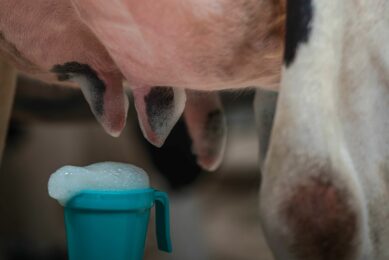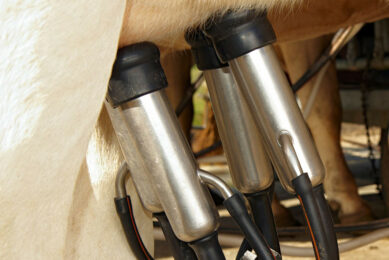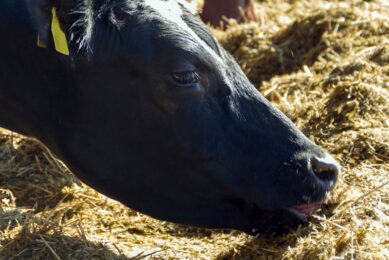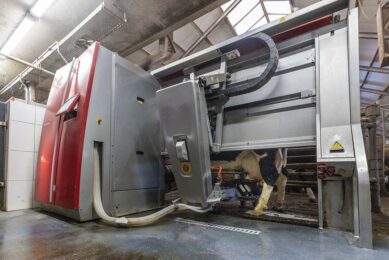Precision fermentation: Disrupting dairy
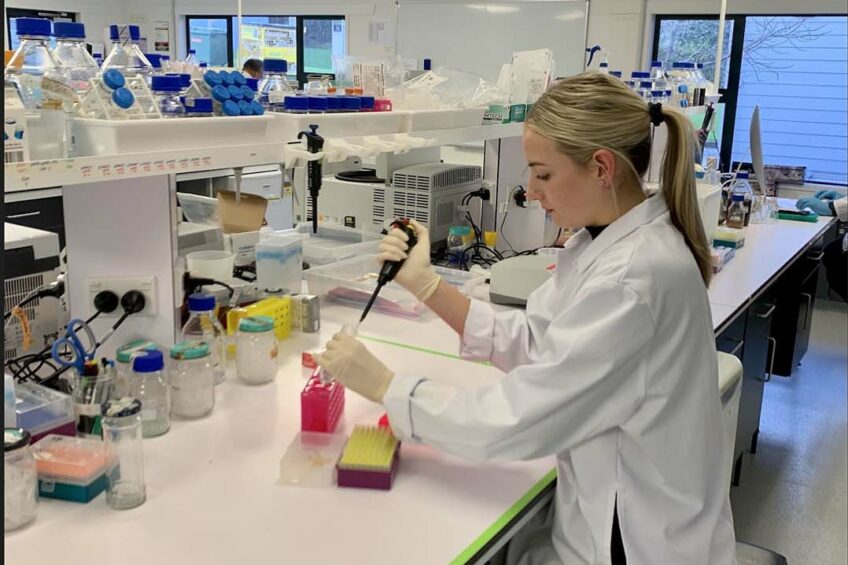
Precision fermentation allows companies to produce high-quality proteins and other biomolecules without the need for animal agriculture. It is a rapidly growing industry that has the potential to disrupt the dairy industry, analysts expect.
According to a report of think tank RethinkX, we are on the cusp of the deepest, fastest, most consequential disruption in food and agricultural production since the first domestication of plants and animals 10,000 years ago.
“This is primarily a protein disruption driven by economics,” the report says. “The cost of proteins will be 5 times cheaper by 2030 and 10 times cheaper than existing animal proteins by 2035.” RethinkX expects that these proteins will also be superior in every key attribute, with almost unimaginable variety.
The think tank outlines serious consequences for the dairy industry. The report entitled Rethinking Food and Agriculture 2020-2030 states that rapid advances in precision biology will have a profound impact on industrial animal farming. “By 2030, the number of cows in the US will have fallen by 50%,” the report says.
It is uncertain how the market will develop exactly in the coming years, but precision fermentation will very likely be a part of it. Demand for dairy is growing and milk production is falling. The startups that produce dairy products from fermentation see opportunities ahead in a fast-growing and lucrative new market.
Commercial quantities
The startup Vivici in the Netherlands is already in a position to supply commercial quantities of whey protein from fermentation to the US market, just over a year after it was created. Vivici has self-affirmed GRAS (Generally Recognized as Safe) status in the US, and has been able to move unusually rapidly by leveraging its founders expertise in dairy proteins and industrial-scale biomanufacturing.
Vivici uses proprietary biotechnology with yeast strains which have been industrially optimised for decades. The company has completed scale-up activities from the lab to commercial scale production. It says it will be working with partners in Europe and the US on commercial manufacturing.
It expects that global demand for protein will nearly double by 2050. “Current ways of producing protein alone cannot be scaled sustainably to meet that demand,” Vivici says. ”Alternative sources of protein, complimentary to traditional agriculture, are needed to feed the world sustainably, efficiently and safely.”
Making dairy proteins
Vivici CTO Marcel Wubbolts says that, nutritionally, Vivici’s beta-lactoglobulin isolate is superior to plant protein isolates, even outperforming whey protein isolates in specific applications because, he says, it is higher in the amino acids beneficial for muscle growth and recovery.
Vivici is one of a rapidly-growing number of firms making dairy proteins with microbes instead of cows. Other companies include US-based Perfect Day, New Culture, Change Foods, ImaginDairy, and Remilk.
Swiss dairy company Nestlé has also joined the precision fermentation market. It is now selling its first precision fermentation dairy protein powder, a whey isolate product called ‘Better Whey’ under the Orgain brand. The product was developed in Nestlé’s R&D Center for Nestlé Health Science in partnership with Orgain.
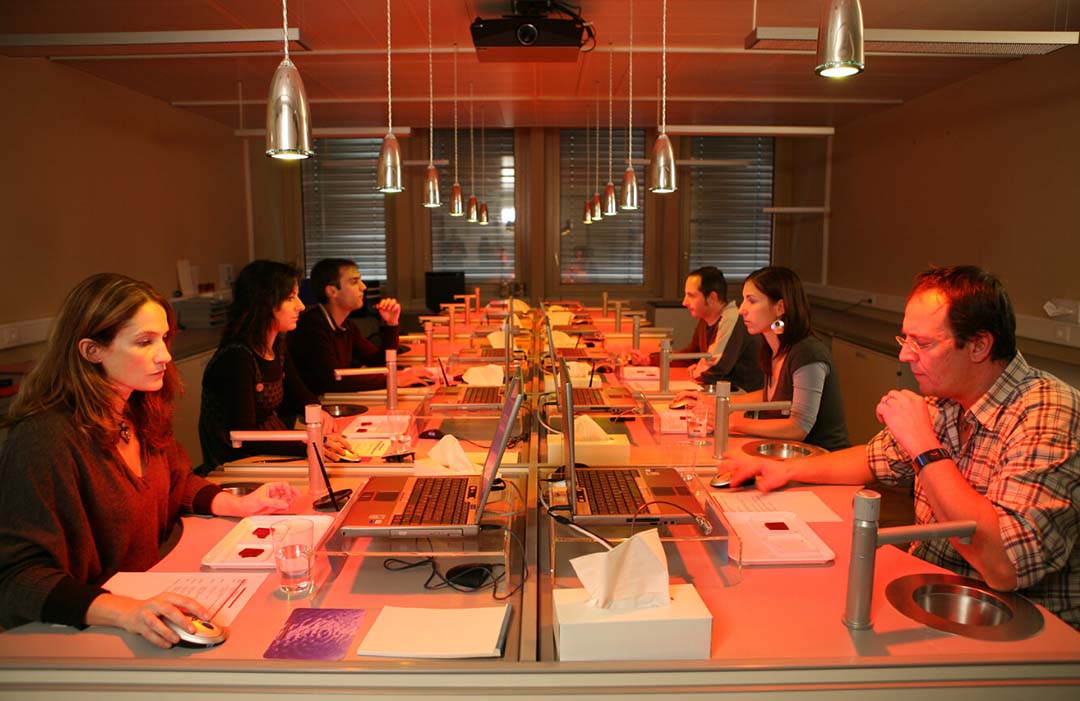
Orgain’s Better Whey is already available and the whey is priced at US$29.99 for a 13.3-ounce tub, around US$2.3 per ounce. Nestlé Health Science purchased a majority stake in Orgain in 2022.
Heike Steiling, head of Nestlé’s Development Center for dairy products, says that the company is exploring emerging technologies that can lead to animal-friendly alternatives that are nutritious and sustainable, without compromising on taste, flavour, and texture.
New startups
New startups regularly appear. Daisy Lab in New Zealand recently also announced successfully manufacturing a final product, a whey protein powder. According to Emily McIsaac, co-founder and COO of Daisy Lab, and her co-founder Irina Miller, felt that it was obvious that dairy proteins would soon be made using precision fermentation. “Daisy Lab initially began as a social project to see how far we could get, but after some media attention and investor funding, we were able to hire scientists and that is when our progress really ramped up.”
Daisy Lab takes friendly microorganisms and introduces a piece of DNA that encodes for the protein it wants to make – like a bovine whey or casein protein. The microorganism then goes into a fermenter and produces the protein it has asked it to make. The protein is then filtered out in a process similar to the way milk is processed in the traditional dairy industry.
The company says it could help produce any product that currently uses milk proteins as an ingredient – yoghurt, cheese, ice cream, sports and nutrition drinks, or as a silent ingredient in products like chocolate bars, biscuits, etc. “Dairy-identical proteins provide these foods with the same nutritional value, texture and mouthfeel as traditional dairy does,” McIsaac says.
Commercial viability
Daisy Lab is about to start raising a round of funding to build a pilot plant. This will allow it to produce enough powder to launch for limited edition products. “Likely in collaboration with existing food producers, to showcase our protein,” McIsaac explains “We anticipate large-scale commercial viability in 2028.”
Precision fermentation offers a solution to continue the production of dairy proteins without the associated ethical and environmental consequences of the traditional diary industry, says McIsaac, who notes that a life cycle analysis done on a similar technology to Daisy Lab’s has shown a 96% reduction in greenhouse gas emissions, a 97% reduction in water use and a 99% reduction in land use.
“Several well-known brands in New Zealand and globally have reached out to us with interest in a partnership. We see this as a great opportunity to showcase our dairy-identical proteins to consumers,” she adds.
Dairy company as an investor
McIsaac expects that – at scale – precision fermentation has the potential to disrupt the way traditional milk proteins are produced. “It also offers the dairy industry an alternative way to produce milk proteins. We can already produce more grammes per litre of whey protein than what is found in cow’s milk. This highlights the ability of biotechnology to engineer microorganism efficiency to produce specific proteins, bypassing the limitations of traditional farming practices. Precision fermentation typically requires less water and land use compared to traditional dairy farming, this is significant in addressing environmental concerns.”



